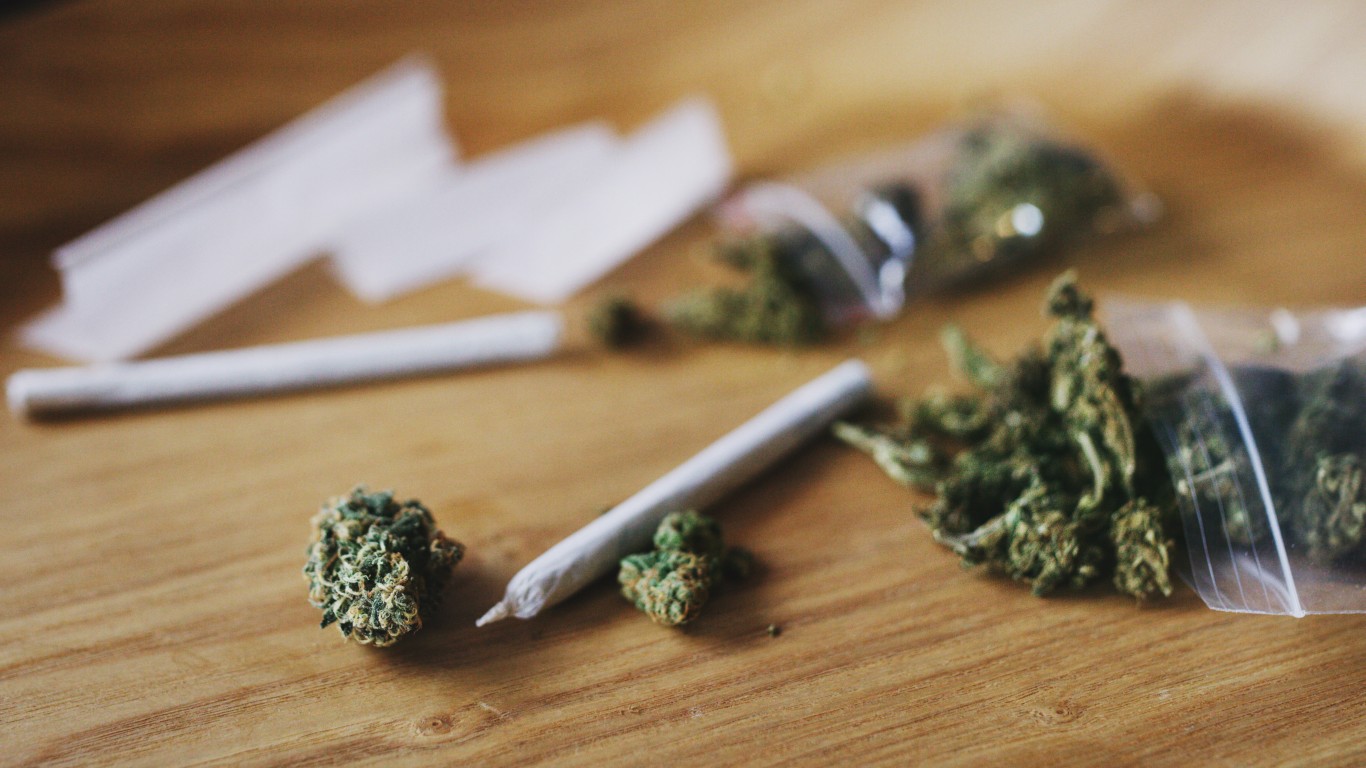

Cannabis legislation continues to make headlines with the Supreme Court of Florida’s recent decision to approve a ballot initiative to legalize recreational marijuana. In November, voters in Florida will decide whether or not their state will be added to the growing list of pot-friendly states.
Medical marijuana was first legalized in California in 1996, with Alaska and Nevada following two years later. States began decriminalizing cannabis for recreational use much later, in 2012, mostly through ballot measures, with California, Alaska, and Nevada not doing so before 2014 and 2016. Vermont was the first state to legalize recreational cannabis use through the legislature, in 2018. As of the beginning of 2023, a majority of Americans had access to legal marijuana. (By the way, this state consumes the most weed: ranking use by state.)
However, even as the trend towards legalizing marijuana continues, there are 19 states where possessing less than 1 ounce of cannabis can land you in prison. A report conducted by the American Civil Liberties Union revealed that law enforcement made more than 6.1 million marijuana-related arrests from 2010-2018. Felony charges for possessing marijuana exist in five states — Florida, Idaho, Kansas, Kentucky, and Tennessee.
Police disproportionately target Black residents and communities even in areas where weed is legal, and this treatment is especially lopsided in the 19 states on this list. An analysis of arrests of Black and white residents for weed possession in 2018 by the American Civil Liberties Union found that Black Americans are anywhere from 2.4 times (Arkansas) to 9.4 times (Kentucky) more likely than white Americans to be arrested for marijuana possession. Reported marijuana usage rates are equal between Black and white residents of all of these states. (These are the worst states for Black Americans: every state ranked.)
To identify the 19 states where you can go to prison for having weed, 24/7 Wall St. reviewed max penalties, possession limits, medical marijuana laws, and racial disparities in marijuana-related arrests from “2022 Behind the Times: The 19 States Where a Joint Can Still Land You in Jail,” a report published by policy reform organization the Marijuana Policy Project, which has received funding primarily from Peter Benjamin Lewis and now his family. Lewis was an American businessman who was the chairman of Progressive Insurance Company.
We reviewed and updated the maximum penalty and medical marijuana laws in July 2023. Marijuana use among state residents aged 12 and up in the past month in 2021 came from the U.S. Department of Health and Human Services’ Substance Abuse and Mental Health Services Administration.
These are the 19 states where you can go to prison for having weed.
South Carolina

South Carolina’s maximum penalty for pot possession is 6 months and a fine of $1,000 for over 1 ounce. Marijuana has not been legalized for medical purposes in this state. Black residents are 3.5 times more likely than white residents to be arrested for pot possession.
Wyoming

Wyoming’s maximum penalty for pot possession is 12 months and $1,000 for 3 grams or less. Marijuana has not been legalized for medical purposes, however, limited use of non-psychoactive Cannabidiol is permitted. Black residents are 5.2 times more likely than white residents to be arrested for pot possession.
Texas

Texas’s maximum penalty for pot possession is 180 days and a fine of $2,000 for less than 2 ounces. Marijuana has been legalized for medical purposes and Texans with certain medical conditions may qualify for the state’s “compassionate use program.” Black residents are 2.6 times more likely than white residents to be arrested for pot possession.
Florida
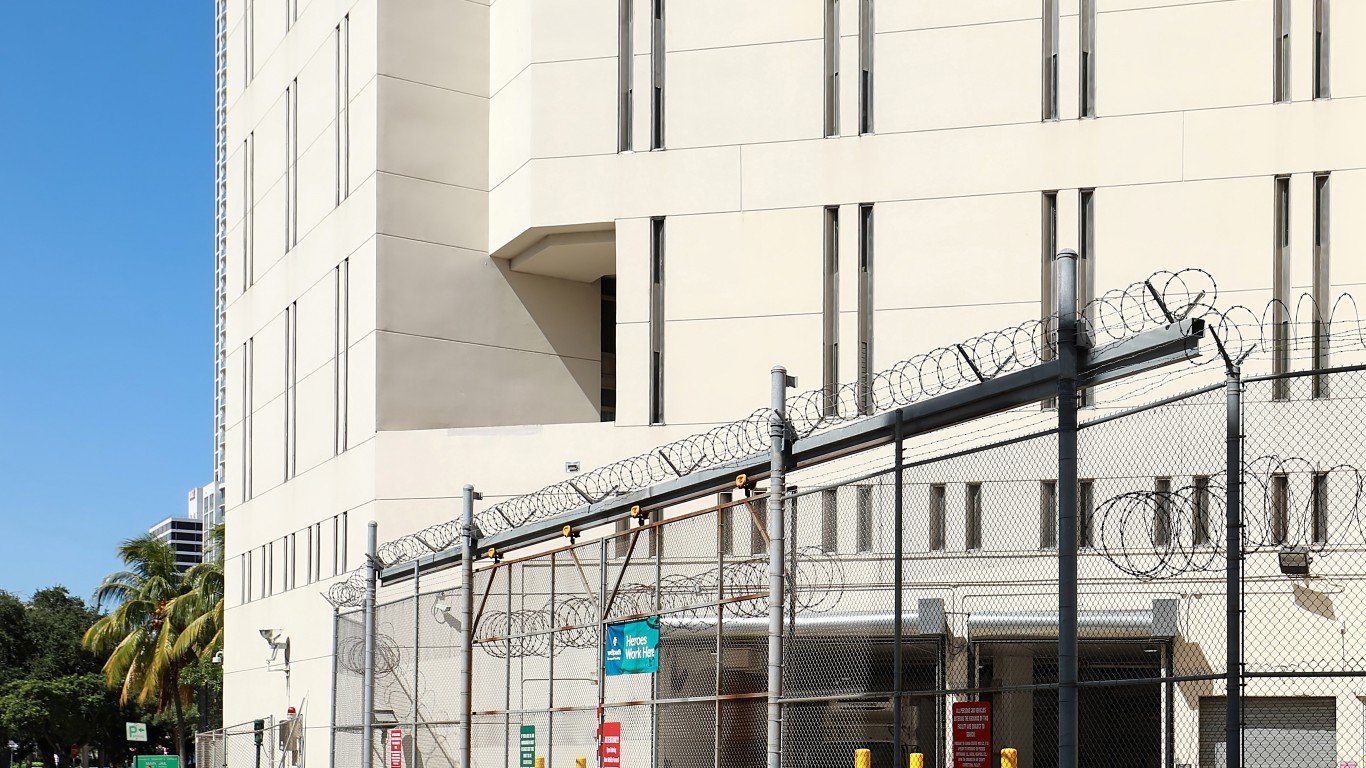
Florida’s maximum penalty for pot possession spans between 1 year and $1,000 for up to 20 grams and a felony charge of 5 years and up to $5,000 for over 20 grams. Marijuana has been legalized for medical purposes, however, sharing with another person is prohibited – even if they are also a patient. Black residents in Florida are 4 times more likely than white residents to be arrested for pot possession.
Arkansas

Arkansas’ maximum penalty for pot possession is 1 to 6 years in jail and a $2,500 fine for 4 ounces. Marijuana is legalized for medical purposes and patients may purchase up to 2.5 ounces of medical cannabis per 14-day period from state licensed dispensaries. Black residents are 2.4 times more likely than white residents to be arrested.
Idaho

Idaho’s maximum penalty for pot possession is 5 years in prison if caught with intent to distribute and fine of $1,000 for up to 3 ounces. Marijuana has not been legalized for medical purposes. Black residents in Idaho are 3.9 times more likely than white residents to be arrested for pot possession.
Pennsylvania
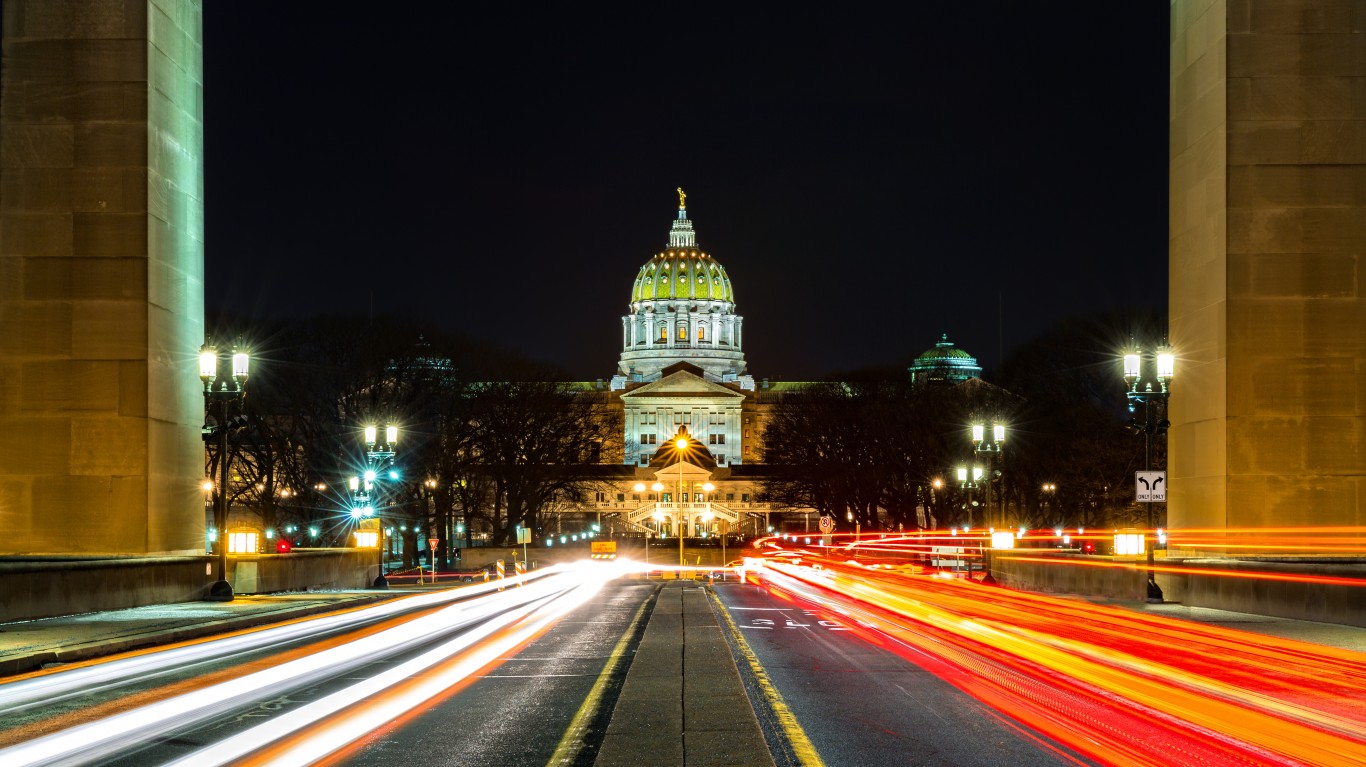
Pennsylvania’s maximum penalty for pot possession is up to 30 days and a fine of $500 for 30 grams. Marijuana was legalized for medical purposes on April 6, 2016. Black residents in Pennsylvania are 3 times more likely than white residents to be arrested for pot possession.
Indiana

Indiana’s maximum penalty for pot possession is 6 months and a fine of up to $1,000 for any amount. Marijuana has not been legalized for medical purposes in this state. Black residents are 3.5 times more likely than white residents to be arrested for pot possession.
Iowa
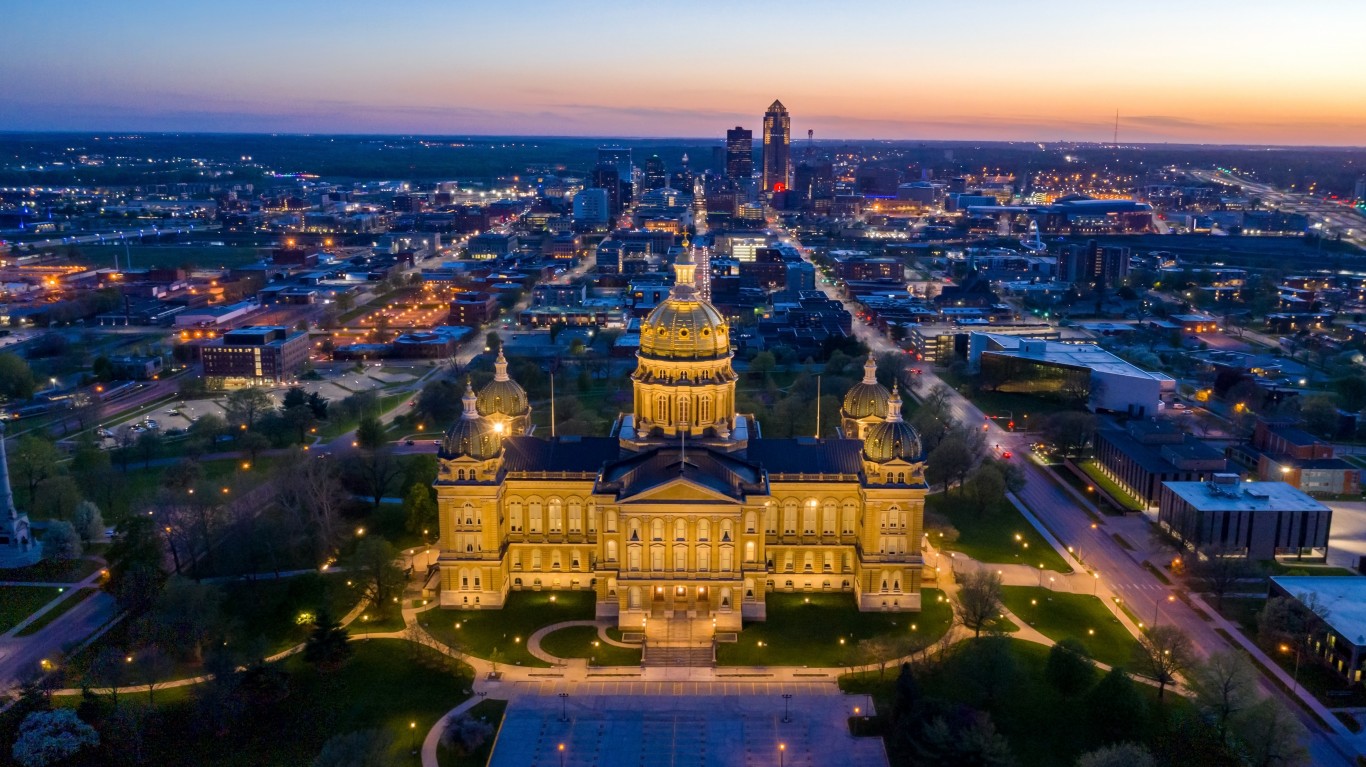
Iowa’s maximum penalty for pot possession is 6 months and a fine of up to $1,000 for any amount. It has, however, legalized marijuana for medical purposes and patients may purchase 4.5 grams of THC every 90-day period. Black residents in Iowa are 7.3 times more likely than white residents to be arrested for pot possession.
Kansas
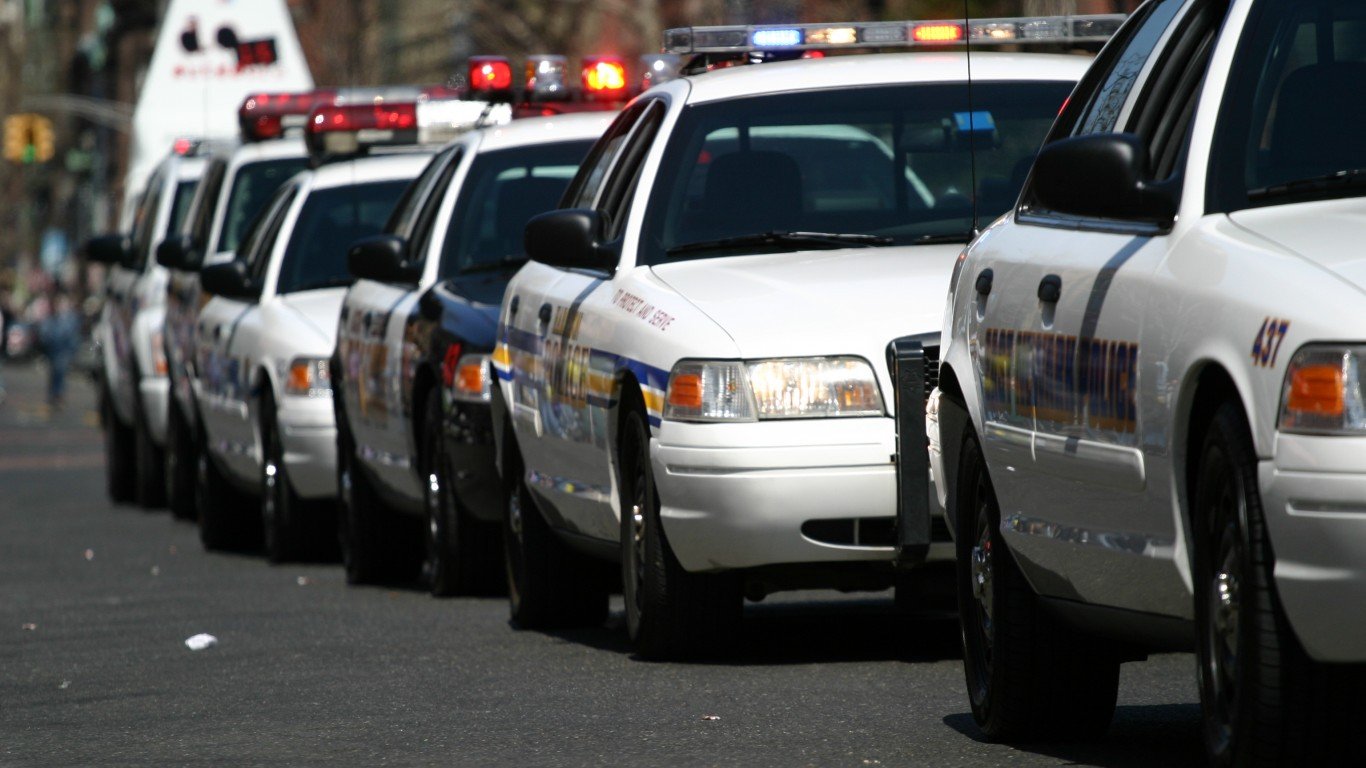
Kansas’ maximum penalty for pot possession is up to 12 months and a fine of up to $2,500 for any amount. Marijuana has not been legalized for medical purposes in this state. Black residents are 4.8 times more likely than white residents to be arrested for pot possession.
Kentucky
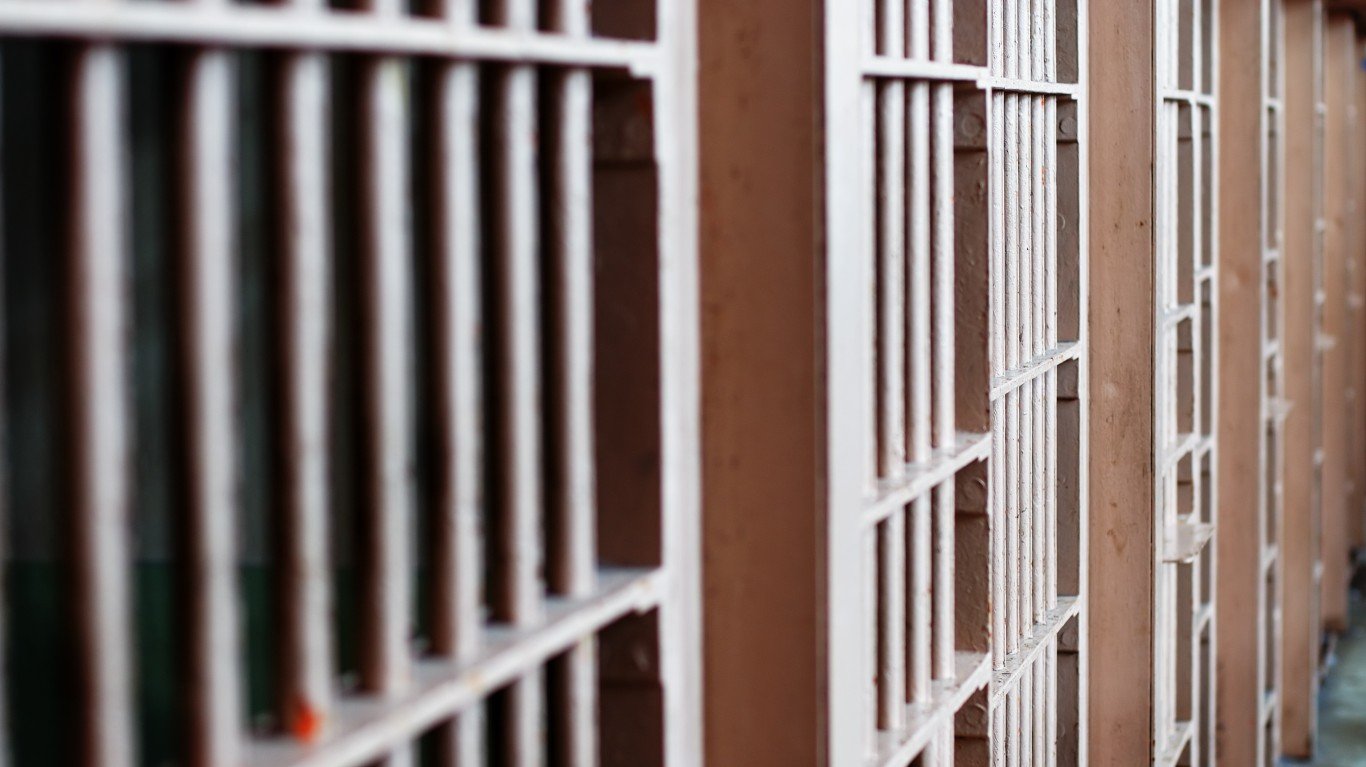
Kentucky’s maximum penalty for pot possession spans between 45 days and a fine of $250 for up to 8 ounces and becomes a felony charge of -1 to 20 years and a fine of $10,000 for over 8 ounces. Marijuana has been legalized for medical purposes for residents who suffer from at least one of 21 medical conditions. Black residents in Kentucky are 9.4 times more likely than white residents to be arrested for pot possession.
Oklahoma
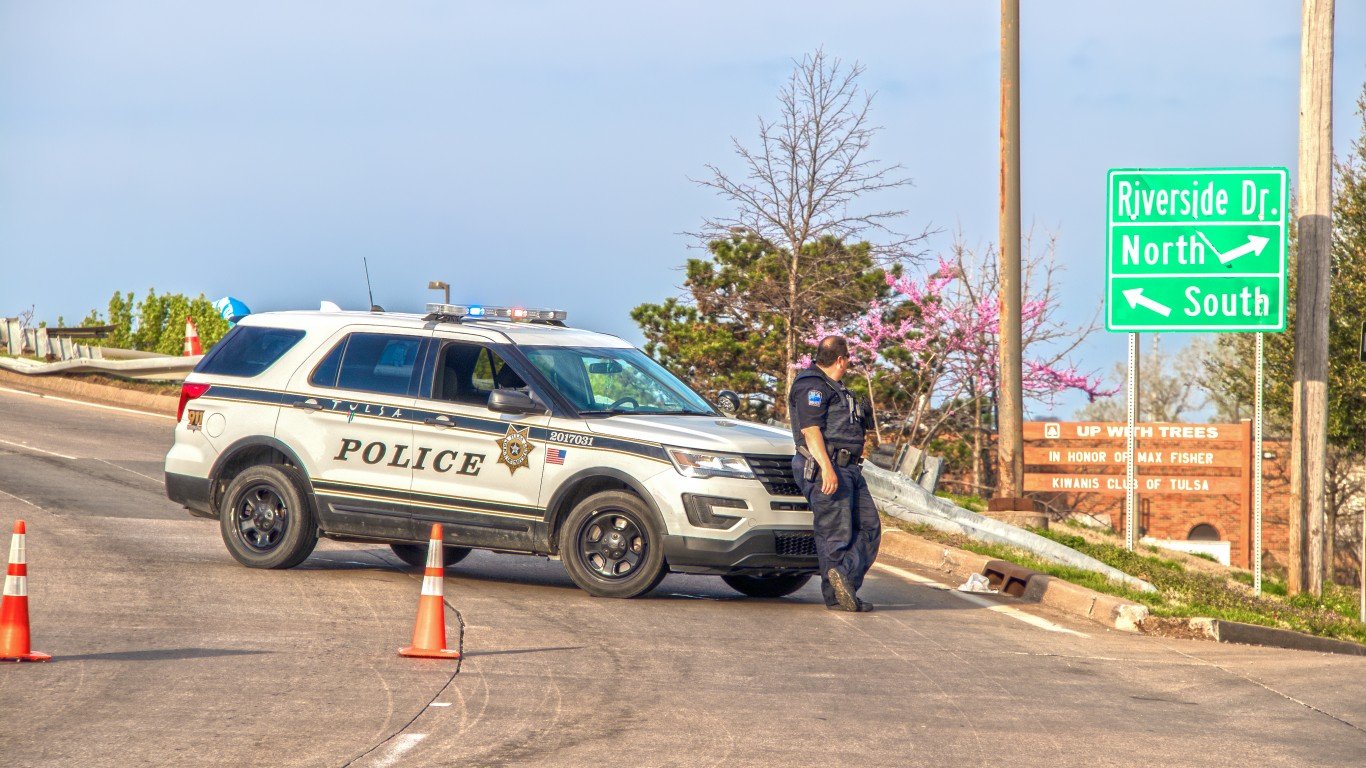
Oklahoma’s maximum penalty for pot possession is up to 1 year and a fine of $1,000 for any amount. Marijuana has been legalized for medical purposes and any condition qualifies; 10% of residents have a card. Black residents are 4.2 times more likely than white residents to be arrested for pot possession.
Georgia
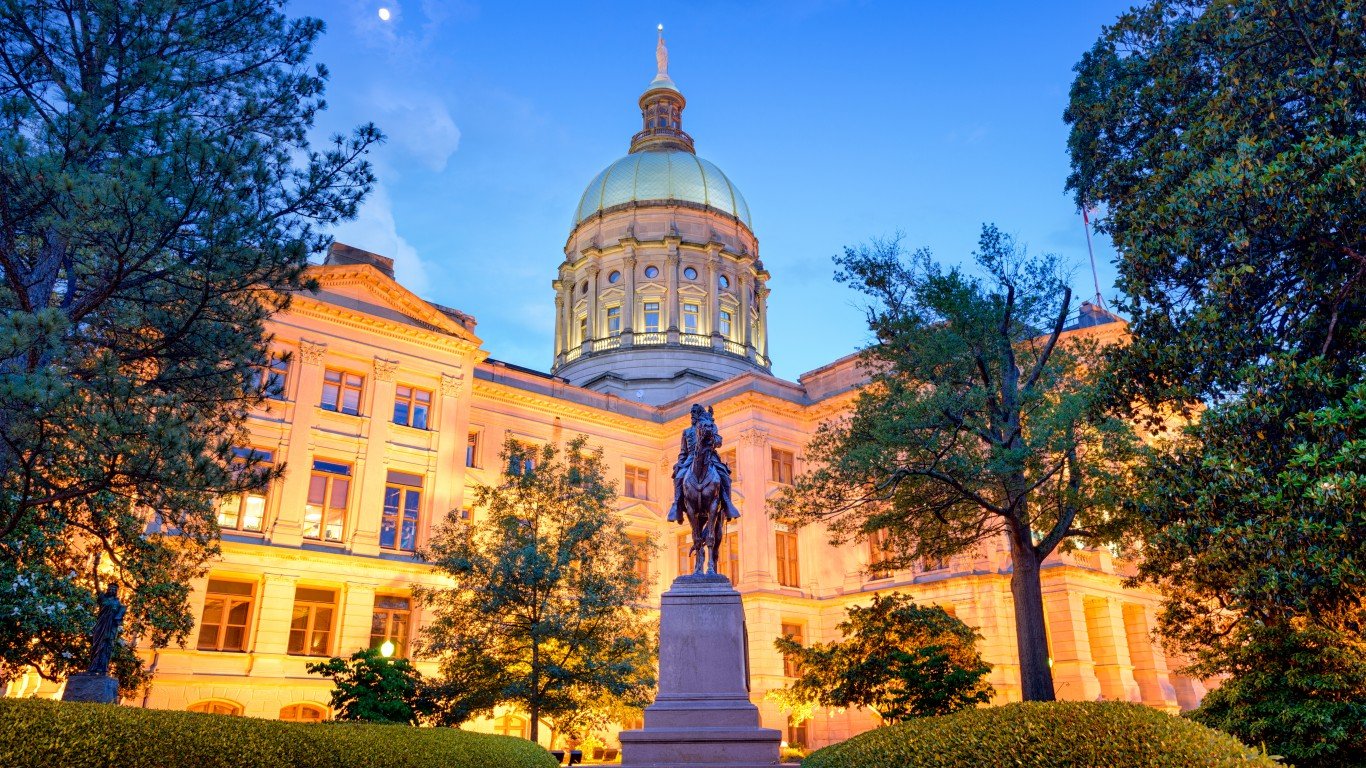
Georgia’s maximum penalty for pot possession is 1 year in prison for over 1 ounce. Marijuana has not been legalized for medical purposes. Black residents in Georgia are 3 times more likely than white residents to be arrested for pot possession.
South Dakota
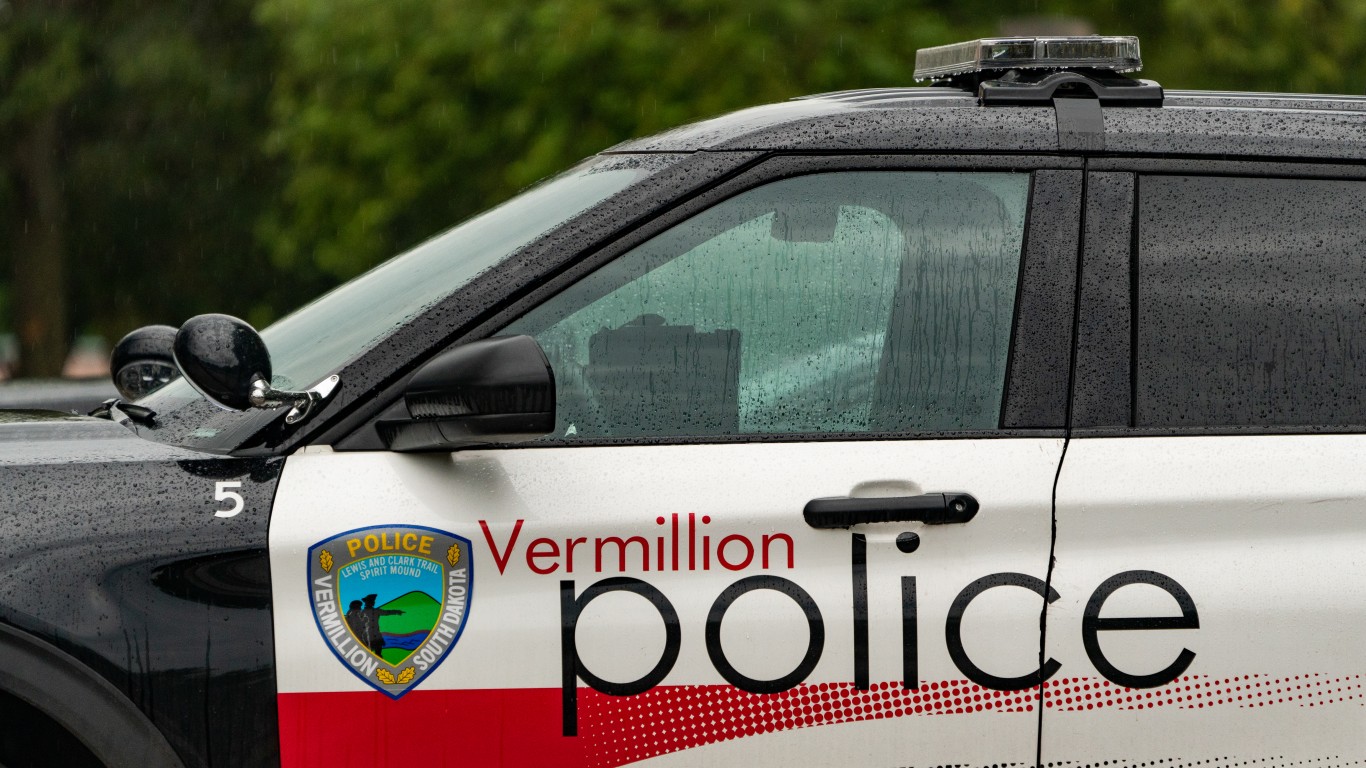
South Dakota’s maximum penalty for pot possession spans between 1 year and a fine of up to $2,000 for up to 2 ounces and becomes a felony charge of -1 year and a fine of $4,000 for over 2 ounces. Medical marijuana use was passed by voter initiative in 2020. Black residents are 5 times more likely than white residents to be arrested for pot possession.
Utah

Utah’s maximum penalty for pot possession is 1 year and a fine of $2,500 for 1 ounce to 1 pound. Marijuana has been legalized for medical purposes and it is legal to purchase and possess hemp extract, or CBD oil, if it contains less than 0.03% tetrahydrocannabinol (THC). Black residents are 4.9 times more likely than white residents to be arrested for pot possession.
West Virginia

West Virginia’s maximum penalty for pot possession is at least 90 days (but not exceeding 6 months) and up to $1,000 for any amount. Marijuana has been legalized for medical purposes and residents with serious medical conditions may use cannabis in pill, oil, or topical forms. Black residents are 7.3 times more likely than white residents to be arrested for pot possession.
Tennessee
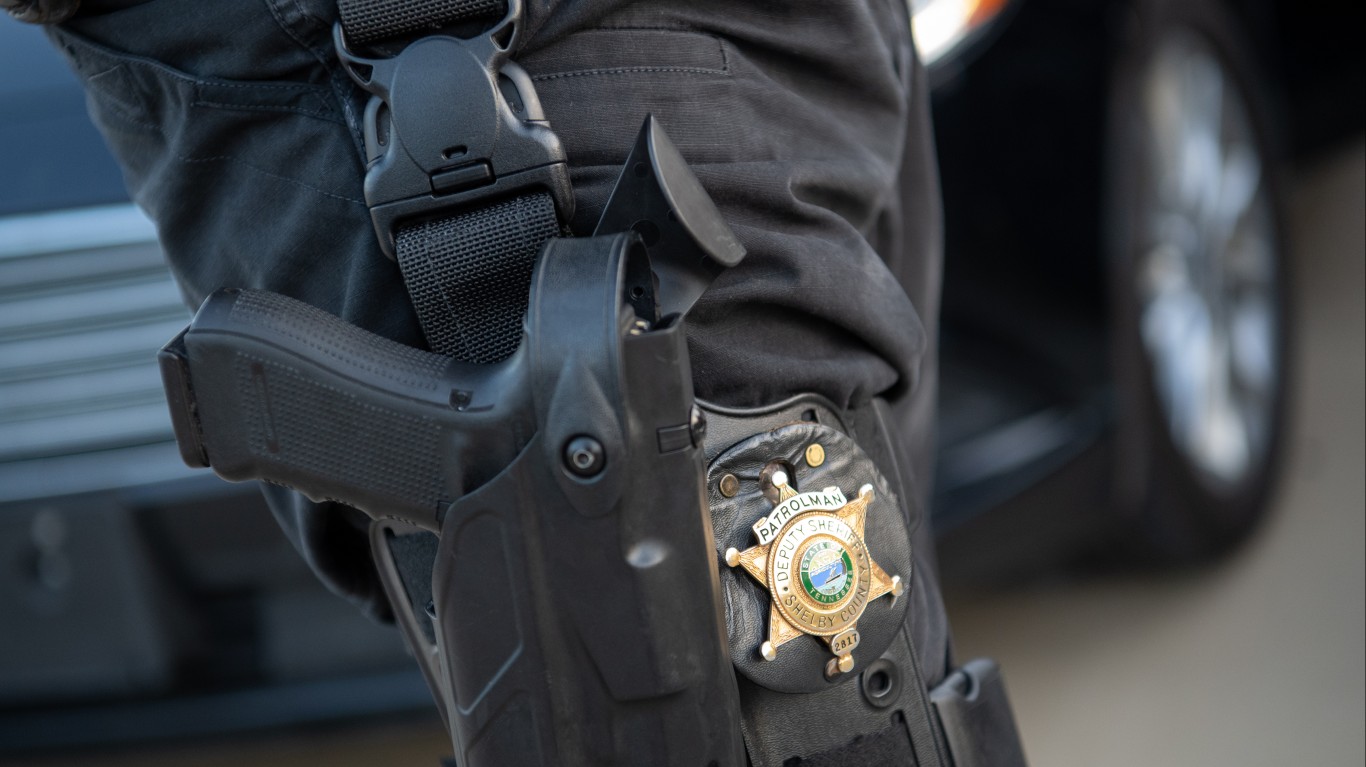
Tennessee’s maximum penalty for pot possession is 1 to 6 years and a fine of up to $2,500 for any amount. Marijuana has been legalized for limited medical purposes and CBD oils with no more than 0.9% THC are permitted. Black residents are 3.2 times more likely than white residents to be arrested for pot possession.
Wisconsin
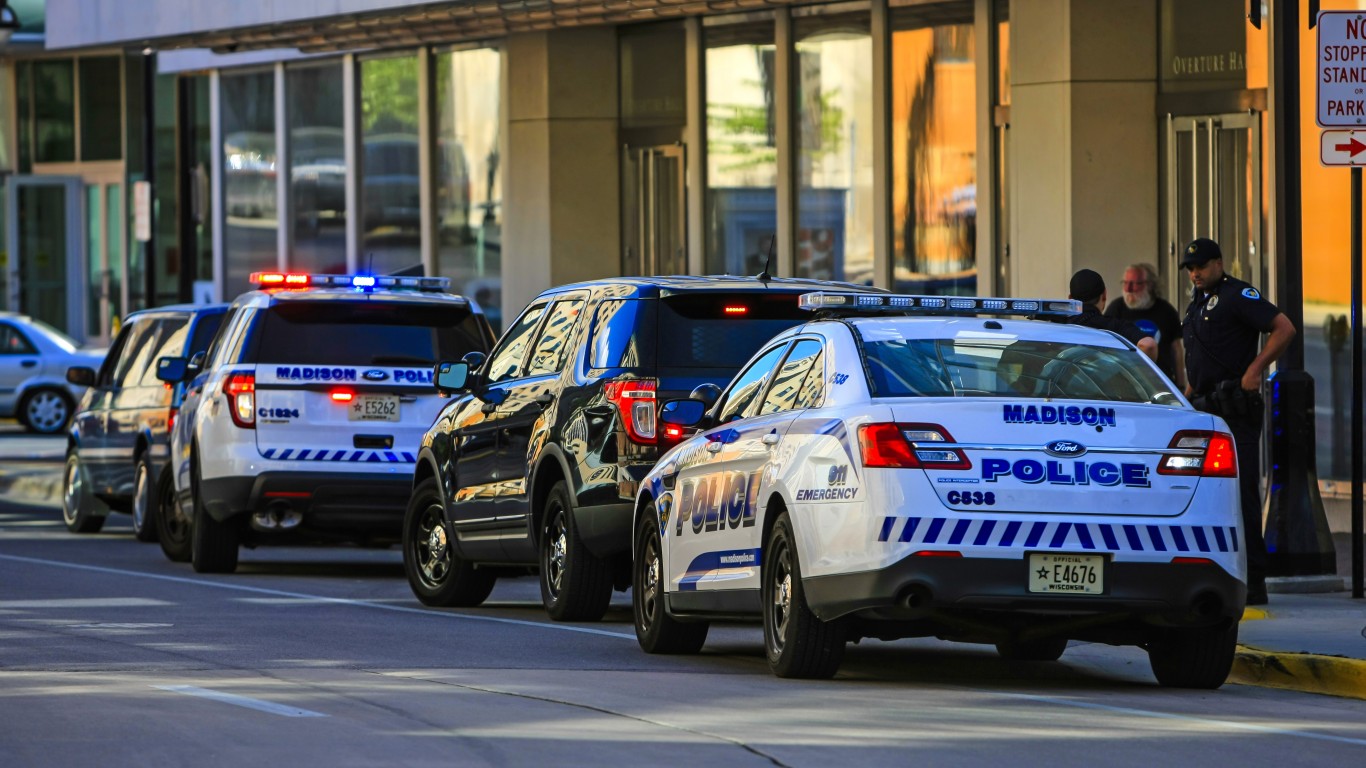
Wisconsin’s maximum penalty for pot possession spans between up to 6 months and a fine of up to $1,000 for any amount and becomes a felony of -3.5 years and a fine of up to $10,000 for a second offense. Marijuana has not been legalized for medical purposes in Wisconsin. Black residents are 4.2 times more likely than white residents to be arrested for pot possession.
Alabama
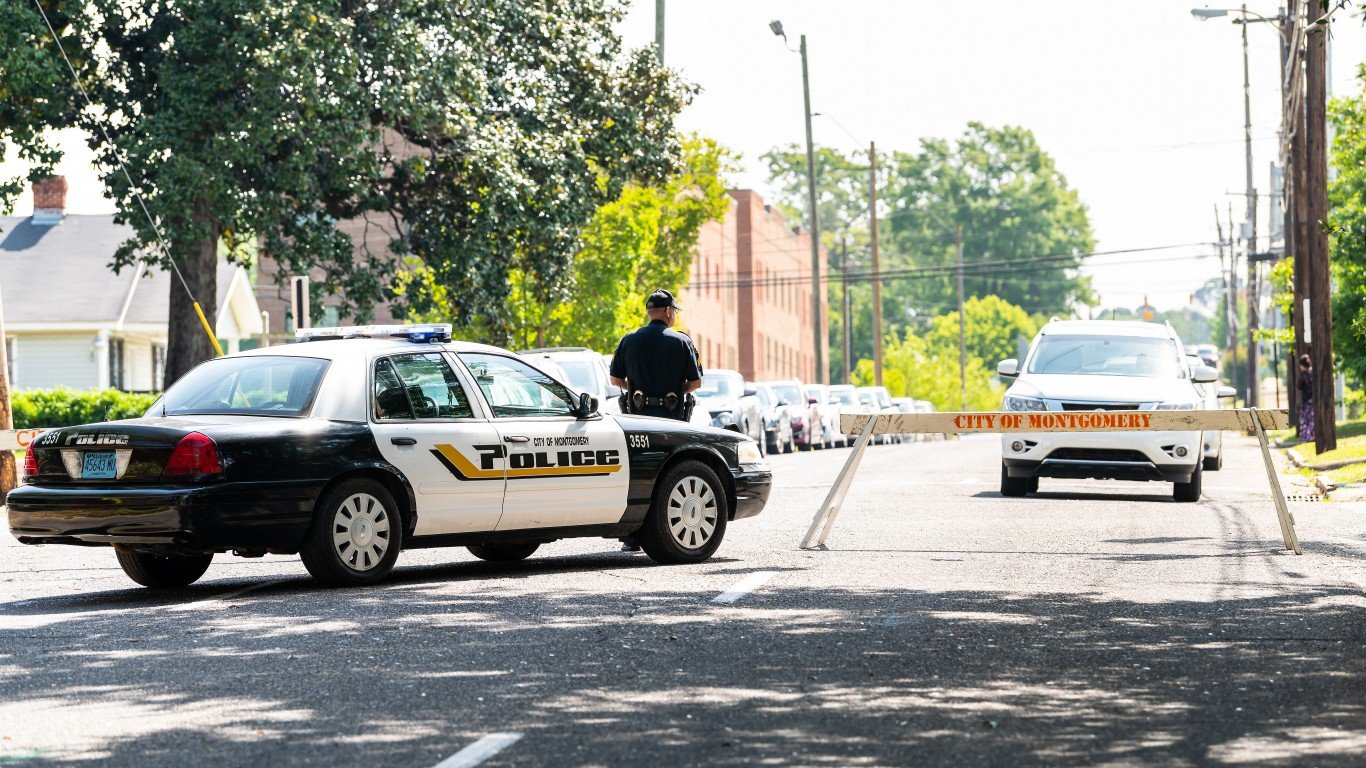
Alabama’s maximum penalty for pot possession is a year in jail and a $6,000 fine. It has, however, legalized marijuana for medical purposes. Black residents are 4.1 times more likely than white to be arrested.
Essential Tips for Investing: Sponsored
A financial advisor can help you understand the advantages and disadvantages of investment properties. Finding a qualified financial advisor doesn’t have to be hard. SmartAsset’s free tool matches you with up to three financial advisors who serve your area, and you can interview your advisor matches at no cost to decide which one is right for you. If you’re ready to find an advisor who can help you achieve your financial goals, get started now.
Investing in real estate can diversify your portfolio. But expanding your horizons may add additional costs. If you’re an investor looking to minimize expenses, consider checking out online brokerages. They often offer low investment fees, helping you maximize your profit.
Thank you for reading! Have some feedback for us?
Contact the 24/7 Wall St. editorial team.